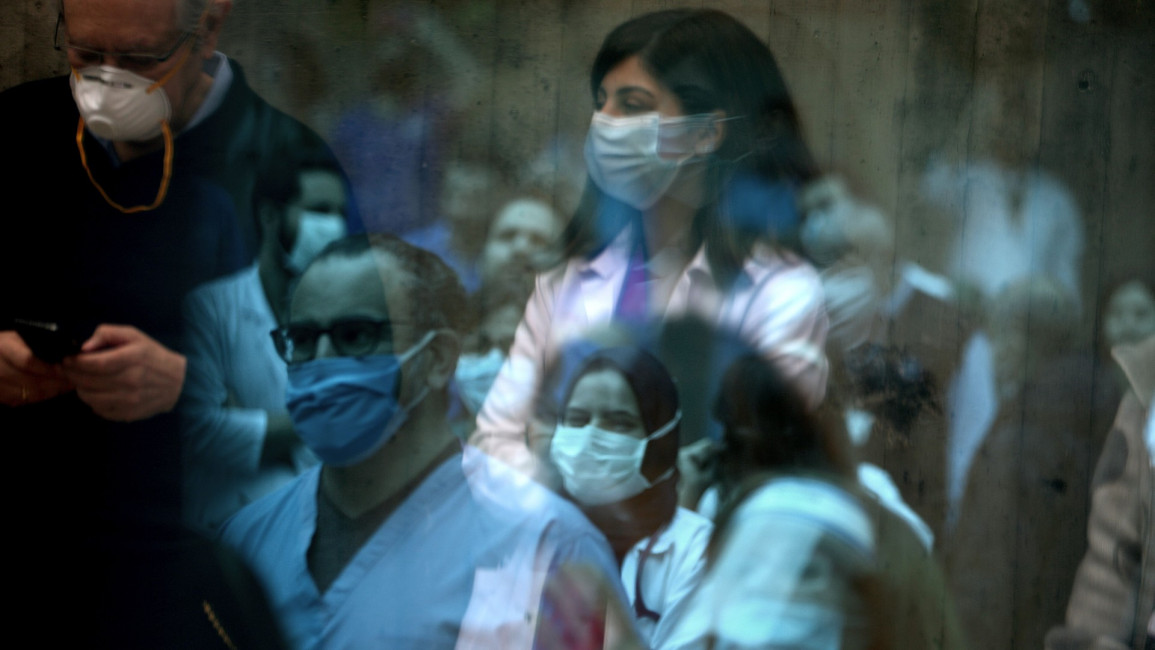Covid-19 cases surge in Lebanon as hospitals struggle to cope
Covid-19 cases surge in Lebanon as hospitals struggle to cope
Beirut is struggling under the weight of another coronavirus surge.
2 min read
Lebanon is suffering under the weight of ever-growing face [Getty]
Lebanon's healthcare system is under strain as record numbers of coronavirus cases gives hospitals more patients than they can deal with.
On three of the last six days, Lebanon registered a record number of daily coronavirus- related deaths in Covid-19 units.
In Beirut's Geitawi Hospital, at least two patients die every day, internal medicine resident Georges Namnoum told L’Orient Today.
"We are trained to deal with patients objectively and avoid getting attached to our patients," he said.
"But we don’t succeed every day. It’s extremely tough."
Lebanon registered 2,496 new cases of coronavirus on Saturday, with 19.4 percent of local PCR tests coming back positive.
In addition, 67 more people died, bringing the total death toll to 3,562.
"Our wards are still crowded, we’re still at full capacity," Namnoum said of the 36-bed unit he works in.
"Residents [graduate doctors in the initial years of medical training] are doing more than we would ever have imagined and we’re completely overwhelmed."
|
Pharmacy shortages
With Lebanon's economy in a tailspin and the coronavirus pandemic wreaking chaos, panic-buying has gripped pharmacies, creating shortages and a flourishing black market.
All manner of pharmaceutical products have started disappearing from the shelves in recent weeks, including some of the most widely needed.
Mostly imported, they include any medicine thought to fight symptoms of Covid-19, pills for patients with chronic diseases, baby formula and even vitamin supplements.
Lebanon was already facing its worst economic crisis in decades and dollar shortages before the pandemic.
Now, with Covid-19 overwhelming hospitals and little public trust authorities can secure vaccines any time soon, people have been rushing to pharmacies to buy medicine.
But even drugs that are rumoured to help treat Covid-19 and oxygen tanks are becoming scarce, as people stock up, anticipating they may have no alternative but to sit out an infection at home.
As boxes disappear from shelves, a black market has emerged, offering medicine or medical equipment - sometimes counterfeits - at many times the normal price.
To slow the depletion, the health ministry has ordered pharmacists to sell some medication only on prescription, and suppliers to limit deliveries to pharmacies.


![President Pezeshkian has denounced Israel's attacks on Lebanon [Getty]](/sites/default/files/styles/image_684x385/public/2173482924.jpeg?h=a5f2f23a&itok=q3evVtko)



 Follow the Middle East's top stories in English at The New Arab on Google News
Follow the Middle East's top stories in English at The New Arab on Google News


